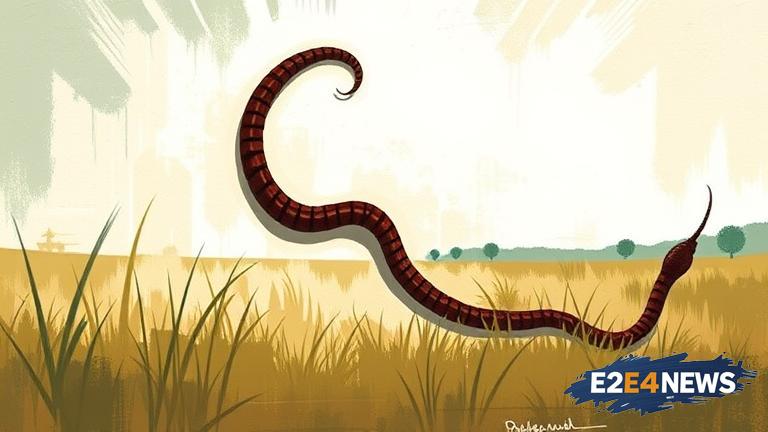A recent case of screwworm infestation in the United States has sparked controversy and criticism from ranchers, who claim that the government has been secretive about the outbreak. The patient, who was infected in Maryland, has since recovered, but the incident has raised concerns about the spread of the disease and the government’s response to it. Screwworms are a type of parasitic fly that can infest livestock and other animals, causing significant harm and even death. The US Department of Agriculture (USDA) has been working to contain the outbreak, but ranchers argue that the agency has not been transparent enough about the situation. They claim that the USDA has not provided adequate information about the number of cases, the locations of the infestations, and the measures being taken to prevent the spread of the disease. This lack of transparency has made it difficult for ranchers to take necessary precautions to protect their animals, they say. The USDA has defended its handling of the outbreak, stating that it has been working closely with state and local authorities to contain the situation. However, ranchers remain skeptical, citing a lack of communication and coordination between government agencies. The screwworm outbreak has significant implications for the livestock industry, which is a major contributor to the US economy. If the disease is not brought under control, it could lead to significant losses for ranchers and farmers, as well as a decline in the quality and safety of meat products. The USDA has implemented measures to prevent the spread of the disease, including the use of insecticides and the establishment of quarantine zones. However, these efforts have been hindered by the lack of cooperation from some ranchers, who are hesitant to report cases of screwworm infestation due to concerns about the potential impact on their businesses. The situation has also raised concerns about the potential for the disease to spread to other parts of the country, where it could have a significant impact on the livestock industry. In response to these concerns, the USDA has increased its surveillance and monitoring efforts, working closely with state and local authorities to identify and contain any new cases of the disease. Despite these efforts, the screwworm outbreak remains a significant concern for the livestock industry, and ranchers are calling for greater transparency and cooperation from the government to bring the situation under control. The USDA has also faced criticism for its handling of the outbreak from animal welfare groups, who argue that the agency has not done enough to protect the welfare of animals affected by the disease. These groups claim that the USDA has been too focused on containing the outbreak and not enough on providing care and treatment to affected animals. The screwworm outbreak has also raised concerns about the potential for the disease to spread to other countries, where it could have a significant impact on the global livestock industry. In response to these concerns, the USDA has been working closely with international authorities to monitor the situation and prevent the spread of the disease. The agency has also implemented measures to prevent the importation of infected animals into the US, which could help to prevent the spread of the disease. Overall, the screwworm outbreak in the US has significant implications for the livestock industry, and the government’s handling of the situation has been widely criticized. The USDA must work to address the concerns of ranchers and animal welfare groups, and provide greater transparency and cooperation to bring the situation under control. The recovery of the patient in Maryland is a positive development, but it is only the first step in addressing the outbreak and preventing its spread. The USDA must continue to work closely with state and local authorities, as well as international authorities, to monitor the situation and prevent the spread of the disease. The agency must also provide greater support and resources to ranchers and farmers affected by the outbreak, and work to address the concerns of animal welfare groups. By taking these steps, the USDA can help to bring the screwworm outbreak under control and prevent its spread, protecting the livelihoods of ranchers and farmers and ensuring the quality and safety of meat products.
